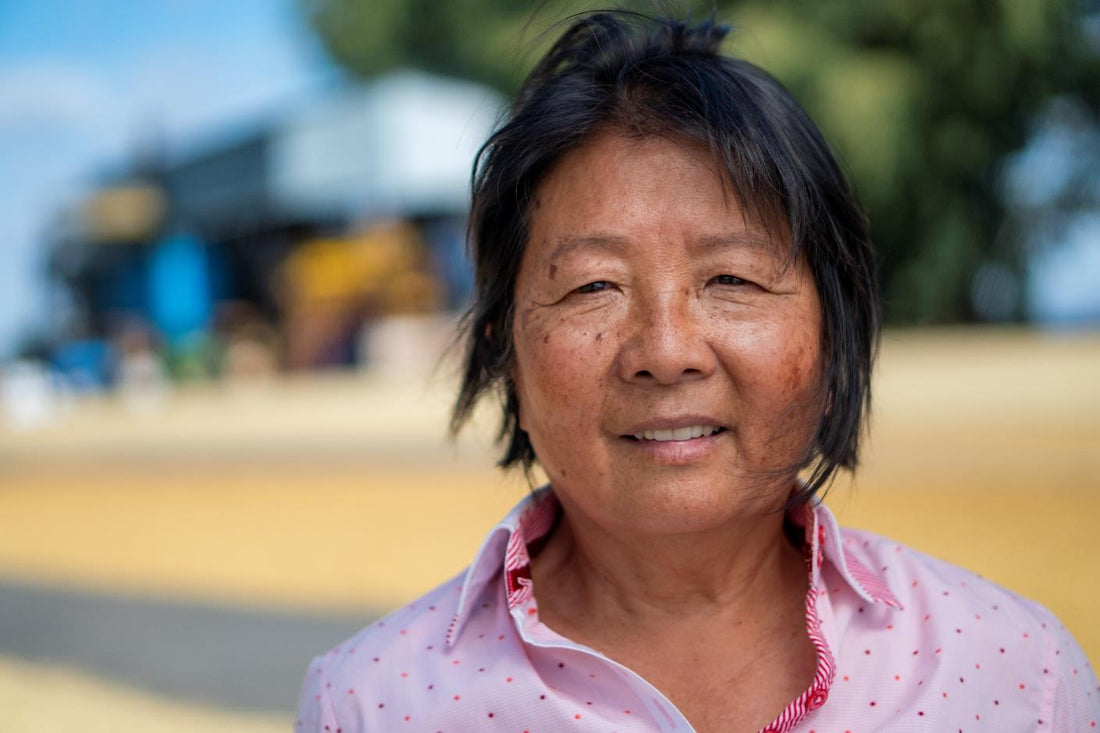
The truth about female-farmed coffee
It’s time to tell some home truths about female-farmed coffee.
We’ve sourced two incredible female-farmed speciality grade coffees for our All Day Every Day Nespresso coffee capsules. The two Arabica coffee beans come from the Primavera Sisterhood in Guatemala and Catanduva Farm in Brazil to make a really delicious, versatile blend.
So, what’s so special about female farmed coffee we hear you ask? Well, quite often women are farming the land because they have to. This isn’t about female empowerment (yet), but about necessity. We’re passionate about supporting female farmers and moving female coffee farming beyond being a necessity and into something we can celebrate.
Coffee farming often isn’t paying enough to support families, meaning the men are moving away – often abroad – to earn enough money to support their families. Leaving women to farm the land. It’s an example of why coffee growing is still an unsustainable business model for many farmers. That’s where the Primavera Sisterhood in Guatemala comes in.
The Primavera Sisterhood, Guatemala
Primavera is a woman-owned business, continuing to push for progress in gender equity. They actively seek partnerships with female coffee producers to expand their market access.
The Primavera Sisterhood is creating a community for women to support each other and learn from each other, as well as financing workshops targeted towards women producers who want to improve yields and quality. Access to educational resources is one of the primary disadvantages faced by women in coffee. So, these workshops are designed to empower women to make good decisions about their coffee farms and coffee processing.
Additionally, the female farmers earn more selling their coffee through the Primavera Sisterhood than they would selling it into the open local market. Of course, this means the coffee beans we buy have been bought at a higher rate than conventional coffee, but it’s #worthit because it’s not only contributing to fair trade in the region bit it tastes incredible.
What does the Primavera coffee bring to the blend?
The Primavera coffee brings the ✨sparkle and the pizzazz✨ to your cup of coffee. It brings the delicious top notes which are all about brown sugar, caramel, nougat and milk chocolate. In fact, it's chocolatey AF.
Catanduva Farm, Brazil
Catanduva is situated in the Moreira micro-region of Cerrado in Brazil. Cerrado is a relatively new coffee region, formed in the 1970s by migrants from the south of Brazil seeking affordable and suitable land. It thrived thanks to the entrepreneurial spirit of the newcomers and research efforts by government agencies. Today, it is a model of modern and sustainable agricultural practices, and it was the world’s first coffee region to receive a designation of origin (D.O), which we think is pretty cool.
Marie Nakao Sassake – the producer at Catanduva – is a third-generation coffee producer. Her family’s journey to coffee farming started when her grandparents relocated to Brazil from Japan in the early 1900s. After initially working in wheat fields in São Paulo, they settled in Catanduva, where they discovered their love for coffee farming. Marie’s father later relocated the family to Cerrado Mineiro, known for its ideal coffee-growing conditions. They established Catanduva Farm, paying tribute to their hometown.
Marie Nakao’s direct involvement in coffee farming began after her husband sadly passed away in 2013. She stepped up to take a leadership position and has since become an inspiration to women in agriculture. The farm embraces best practices, sustainability and transparency, navigating the coffee industry’s challenges.
What does Catanduva bring to the blend?
While Primavera brings the pizzazz, Catanduva is the backbone or the canvas if you will. It brings the syrupy texture, body and mouthfeel, as well as notes of chocolate and a subtle nuttiness. These two coffees are the perfect pair!















